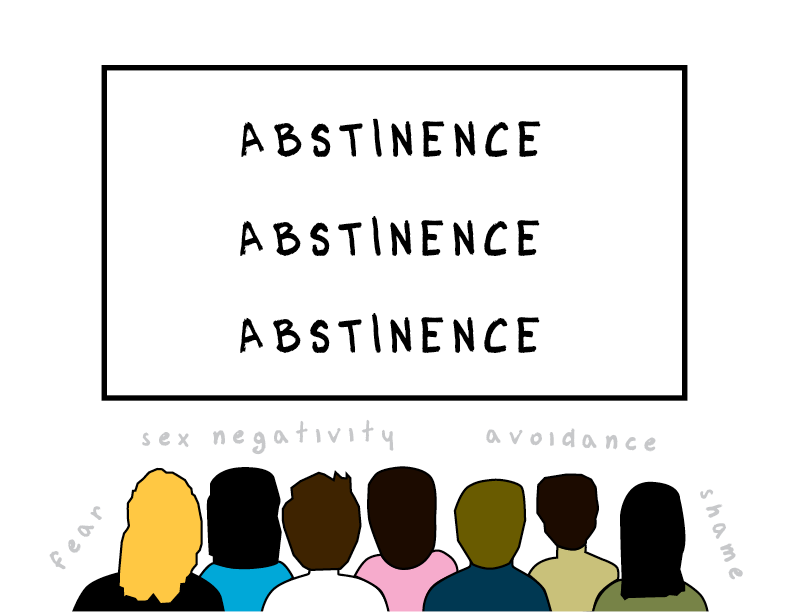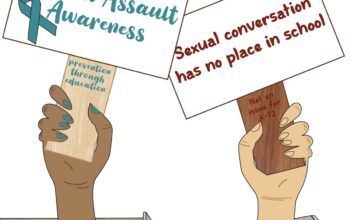Aleena Nasruddin, Editor-in-Chief
@aleenacourant
Knowledge is power. But my experience with sex-ed at the high school would go against this premise. The health curriculum at the high school teaches sex as though it is a taboo: students are shown videos of teenagers regretting having sex and teachers often rush through class periods where sex is actually mentioned. And although sex is mentioned in class, the curriculum revolves around abstinence rather than the use of contraceptives or birth control to have safe sex.
While abstinence may be the best way to prevent STDs and unwanted pregnancies, is it truly the most realistic way to deal with teenage sex? 56 percent of boys and 50 percent of girls aged 15–19 reported having had sexual intercourse, according to a National Survey of Family Growth in 2019 managed by the Centers for Disease Control and Prevention (CDC). Even so, only 54 percent of sexually active students reported using condoms as the only contraception in 2019 and nine percent reported using condoms in addition to another form of birth control. Will an abstinence-only education address high school students who are sexually active but don’t have in-depth information on birth control? Sex-education with a curriculum focused on both the risks of sex and other birth control options would be more optimal for students.
By offering abstinence as the only way to have a safe relationship, students often feel embarrassment and fear when sex is brought up. Schools should empower students with knowledge to feel comfortable in their own bodies and as young adults. Students should not have to resort to the internet or media for potentially incorrect information on birth control and contraceptives.
However, some argue that students are taught that sex is acceptable through sex education. But is that really the case? If we implement a curriculum that teaches both abstinence and other birth control options, then students would be taught about the risks associated with sexual intercourse—they would not be taught that the school endorses sex. A similar comparison can be made between sex-ed and classes on vaping. The school has taught students on how vaping works and the science behind it, but that doesn’t mean the school endorses vaping. Sex-ed curriculum doesn’t teach students how to have sex, but rather teaches students the risks of sex and options to stay safe.
Others have said that the responsibility to teach students about sex should be that of the parents, not the high school. While some parents are comfortable talking to their children about sex, others may not be. Students at New Canaan High School have drastically different amounts of knowledge on sex, depending on what information they learn from their parents—but is it ethical to exclude some students from receiving factual information on how to lead healthier lives? If New Canaan High School implements sex-education in their curriculum, all students will have equal access to information and the opportunity to learn about safe sex lives.
Ultimately, teenagers have sex. Our antiquated health curriculum needs to be updated to teach students about contraceptives. The way to combat teen pregnancies, sexual diseases, and safe sexual relationships is through education—not avoidance.




